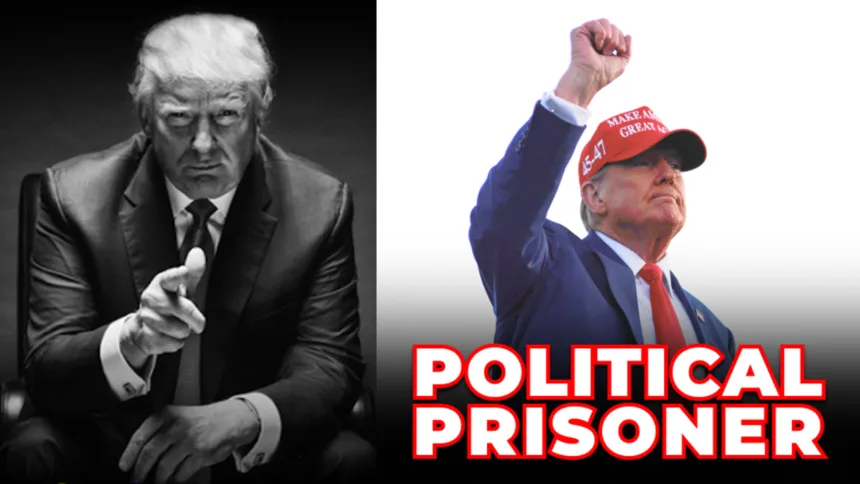Former President Donald Trump has announced his intention to appeal the guilty verdict that found him guilty of felony crimes for falsifying business records in a scheme to illegally influence the 2016 election. Trump’s announcement came shortly after his sentencing date was set for July 11.
Speaking from the Trump Tower lobby in Manhattan, where he launched his first presidential campaign in 2015, Trump criticized the trial as a “rigged” attempt to derail his bid for the White House in the 2024 election. “If they can do this to me, they can do this to anyone,” Trump, 77, declared during an unscripted 33-minute speech, applauded by his supporters. He added, “We’re going to be appealing this scam,” but took no questions from reporters.
Trump will have 30 days from his July 11 sentencing to file a notice of appeal.
President Joe Biden, who will face Trump in the upcoming November 5 election, responded to Trump’s remarks, emphasizing that Trump had been given the opportunity to defend himself in a fair trial. “It’s reckless, it’s dangerous, it’s irresponsible for anyone to say this was rigged just because they don’t like the verdict,” said Biden, 81, speaking from the White House.
The historic guilty verdict against Trump, the first ever for a U.S. president, thrusts the nation into uncharted legal and political territory. The charges of falsifying business records carry a maximum sentence of four years in prison. However, most individuals convicted of such offenses typically receive shorter sentences, fines, or probation.
More Read
Trump’s public criticism of the jurors and witnesses during the trial, which led to Justice Juan Merchan imposing a $10,000 fine, could potentially influence the judge to impose a harsher sentence, according to legal experts like former New York prosecutor Rebecca Roiphe. However, any sentence is expected to be suspended until the appeals process is completed.
Representatives Speaker Mike Johnson, a close Trump ally, predicted that the U.S. Supreme Court would eventually overturn the verdict, stating on Fox News, “I think they’ll set this straight, but it’s going to take a while.”
Despite the conviction, Trump is not barred from campaigning or assuming office if he wins. His sentencing on July 11 will occur just days before the Republican Party is scheduled to formally nominate him as its presidential candidate at its convention in Milwaukee.
Trump was convicted of 34 criminal counts of falsifying documents related to a hush money payment to porn star Stormy Daniels, intended to influence the 2016 election in which he defeated Democrat Hillary Clinton. This New York case is one of several legal challenges Trump faces, including prosecutions for his efforts to overturn his 2020 election loss to Biden. Nonetheless, the New York verdict might be the only one resolved before the November election.
Public reaction to Trump’s conviction has been mixed. National opinion polls show Trump in a tight race with Biden. An April Reuters/Ipsos poll indicated that one in four Republican respondents would not vote for Trump if he were convicted of a felony. Despite this, Trump’s campaign reported raising $52.8 million online within 24 hours of the verdict. Some major Republican donors have pledged continued support.
During the trial, explicit testimony from Daniels described a sexual encounter with Trump in 2006, which Trump denies. Michael Cohen, Trump’s former attorney, testified that Trump authorized the $130,000 hush money payment to Daniels and orchestrated a plan to reimburse Cohen through monthly payments disguised as legal fees. The prosecution, led by Manhattan District Attorney Alvin Bragg, argued that Trump’s actions elevated the misdemeanor of falsifying business records to a felony due to the intent to conceal an illegal campaign contribution.
If re-elected, Trump could potentially terminate the two federal cases accusing him of attempting to overturn his 2020 election loss and mishandling classified documents after leaving office. However, he would have no authority to dismiss the election subversion case in Georgia.
As Trump prepares for his July 11 sentencing and subsequent appeal, the nation remains sharply divided over the legal and political implications of this unprecedented conviction.












